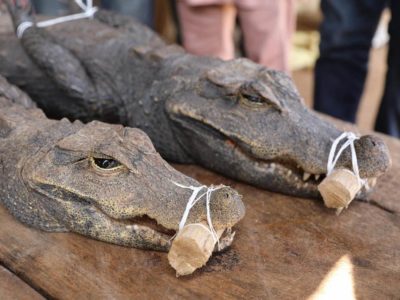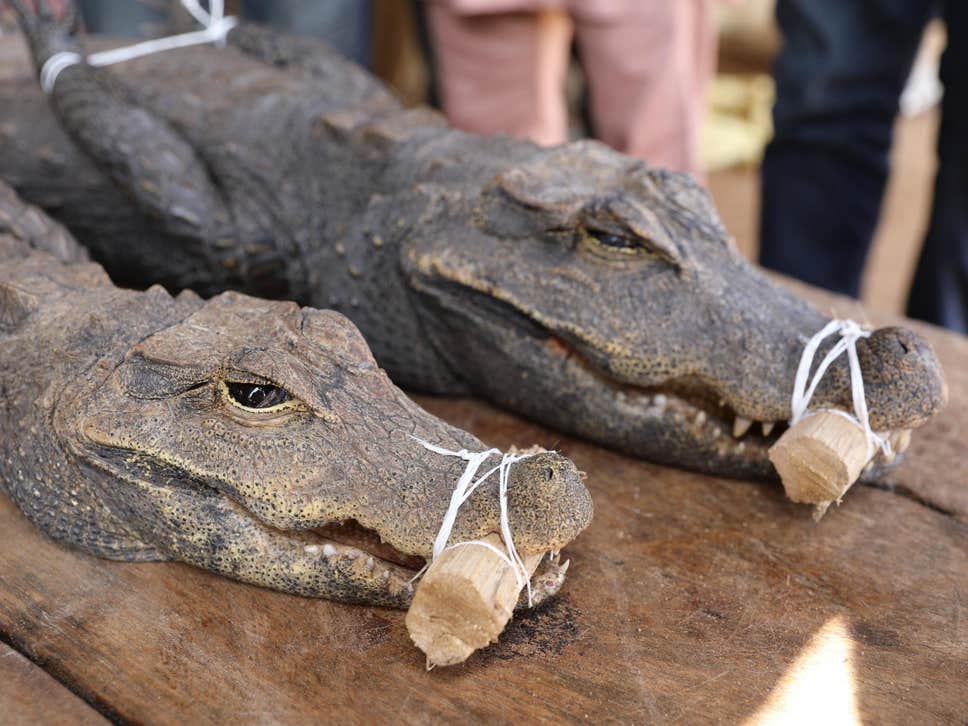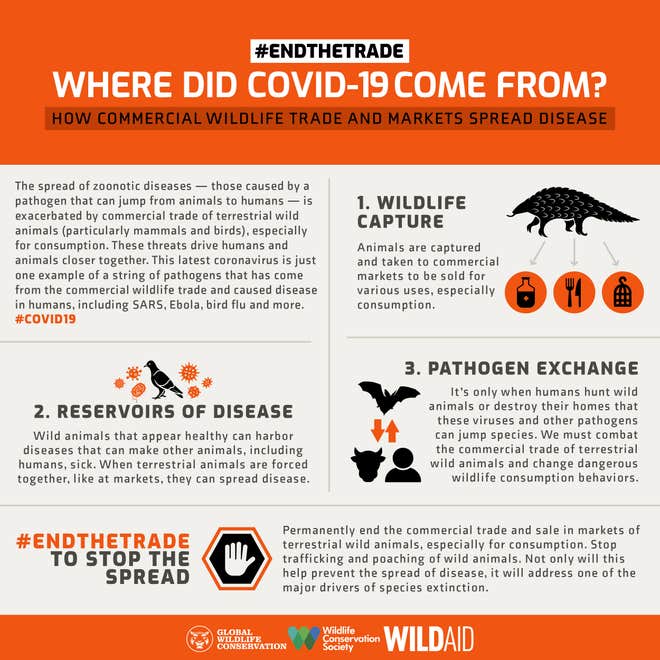


‘Mobilising a global response to end the trade is the most pressing action we can take today to ensure a pandemic like Covid-19 never happens again’


Boris Johnson’s fiancee Carrie Symonds is backing a global movement to pressure world governments into banning the world’s trade in wildlife, thought to be behind the coronavirus outbreak.
Scores of conservation and environmental causes around the globe have joined forces to petition countries’ leaders to halt animal trafficking.
The coalition of organisations says it is calling on scientists, policymakers, health professionals and the public to help “drive a global paradigm shift to prevent future pandemics” by signing its declaration to end the trade.
The movement comes after The Independent launched a campaign against the wildlife trade, with conservationist Jane Goodall warning: “As we destroy the environment, animals are living in smaller and smaller spaces, and viruses are transferring from one animal to another.”
Ms Symonds tweeted that she had signed the petition, and urged others to do so, adding: “This crisis gives us the chance to start doing things better. Let this be one of those things.”
Scientists say the evidence points to Covid-19 originating from animals – most likely horseshoe bats, and transferred via pangolins – in “wet” markets where live and dead creatures, from dogs to monkeys, are sold as food and slaughtered on demand.
Previous epidemics, including severe acute respiratory syndrome (Sars), which killed nearly 800 people in 2002-03, and Ebola, which has killed at least 11,300 people, have also been linked to animals.
The new Coalition to End the Trade, which includes WildAid, Global Wildlife Conservation and the Wildlife Conservation Society, says it is working with the European Commission to permanently ban the commercial trade in terrestrial wild animals, especially for consumption.
The EU is giving €10m (£8.8m) to support an “emergency response for the most vulnerable communities and ecosystems” while the trade is closed down.
All creatures, including humans, carry viruses that do not normally make them ill but when one jumps species it can have devastating effects, experts say.
The World Health Organisation has already urged countries to close “dangerous” wet markets, saying it was pleading with world leaders to do so.
The declaration calls for national governments to:
Enact legislation to permanently end the commercial trade and sale in markets of terrestrial wild animals, especially for consumption
Give authorities powers to adequately enforce the law
And develop ethical transition measures for people whose livelihoods are harmed by a ban
The campaign exempts “subsistence hunting by indigenous people and local communities for household consumption and/or cultural identity”.
Organisers say if people are eating wild animals because they have no alternatives, national governments must ensure they have access to sustainably produced domestic animal or plant foods to help reduce the risk of exposure to zoonotic pathogens.
Peter Knights, head of WildAid, said: “Mobilising a global response to end the wildlife trade is the most pressing action we can take today to ensure a pandemic like Covid-19 never happens again. If you care about your health, you should care about wildlife conservation.”
Wes Sechrest, chief scientist and chief executive of Global Wildlife Conservation, said: “This tragic pandemic and the havoc it has wreaked around the planet is a resounding wake-up call for humankind.


“We need the courage now to re-examine our relationship with nature and shut down the commercial trade of terrestrial wild animals, otherwise it is quite possible that zoonotic pandemics may become a new norm. The Coalition to End the Trade is answering the call and encouraging the rest of the world to join us.”
Since the Covid-19 pandemic, China has introduced a temporary ban on all wildlife trade for consumption, and two Chinese cities have banned dog and cat meat.
However, some “wet” markets – those where animals are slaughtered on demand and the streets hosed down afterwards to clear the remains – have since started up again.
Stay in touch and get the latest WildAid updates.
SIGN UP